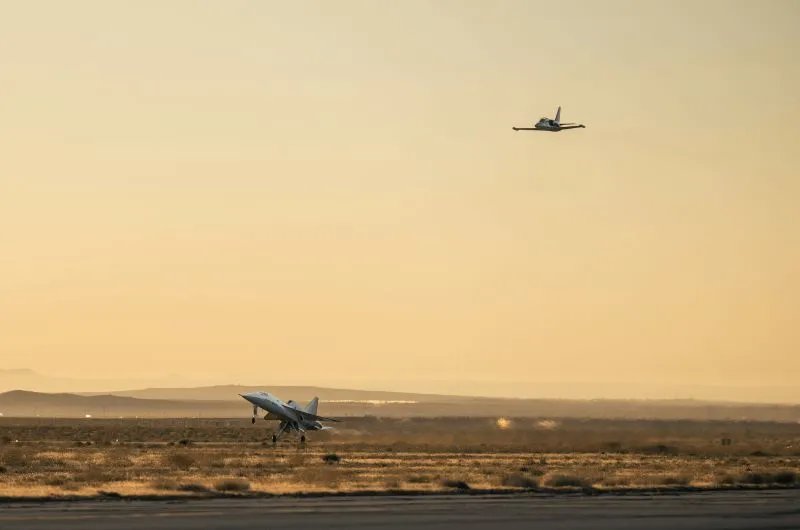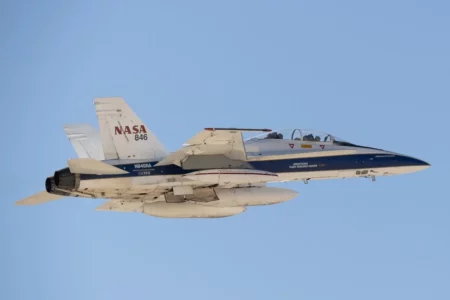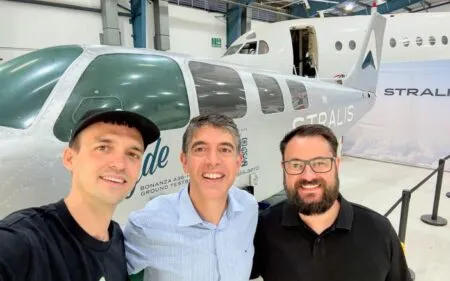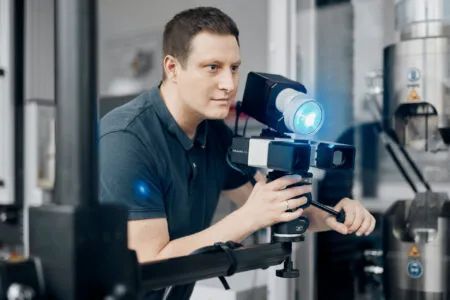Boom’s supersonic demonstrator aircraft XB-1 has completed its third flight on September 13, at the Mojave Air & Space Port in Mojave, California.
The cadence of test flights is increasing and Boom plans for XB-1 to perform a supersonic test flight before the end of the year.
During last week’s flight, which was piloted by Chief Test Pilot Tristan “Geppetto” Brandenburg the team continued to test key systems and performance as they systematically expand the flight envelope.
Geppetto, took XB-1 to the maximum pitch and yaw attitudes and the testing was done at a safe, higher altitude to ensure there were no unexpected handling qualities.
The team also checked the performance of the environmental control system (ECS), which controls the temperature and pressurization of the cockpit. This test is to ensure that the ECS is functioning as designed before XB-1 goes to higher altitudes, where it is colder and the pressure is lower.
The landing gear was extended and retracted at higher speeds than its previous flight (215 knots), marking the second of three steps working up to the maximum safe speed for raising and lowering the gear, which is 225 knots. Additionally, the team continued testing of the stability augmentation system, which was demonstrated during the second flight.
The XB-1 flight test program continues to progress while systematically expanding the flight envelope to confirm its performance and handling qualities through and beyond Mach 1. The sequencing of test flights will increase through this next phase of testing with a total of approximately 10 flights before reaching supersonic speeds.

Just weeks after XB-1’s inaugural flight, Boom secured the first-ever Special Flight Authorization (SFA) to Exceed Mach 1 from the Federal Aviation Administration (FAA). XB-1 test flights will continue to be conducted in the R-2508 Complex and supersonic operations will occur in the Black Mountain Supersonic Corridor and in a portion of the Bell X-1 Supersonic Corridor within the R-2515 airspace, which has been used extensively for research and military supersonic aeronautical operations.
The XB-1 demonstrator is providing the foundation for the design and development of Overture, Boom’s supersonic airliner. XB-1 uses digitally-optimized aerodynamics, carbon fiber composites, advanced supersonic engine intakes and an augmented reality vision system for take-off and landing visibility.
Two decades after Concorde’s retirement, the first flights of XB-1 mark the return of a civil supersonic aircraft to the skies and pave the way for the revival of mainstream supersonic travel onboard Overture.




